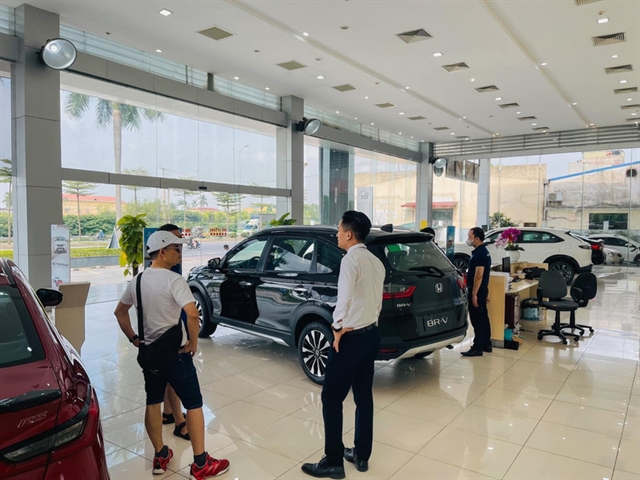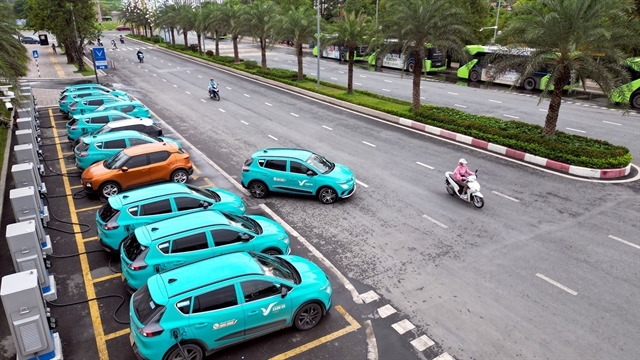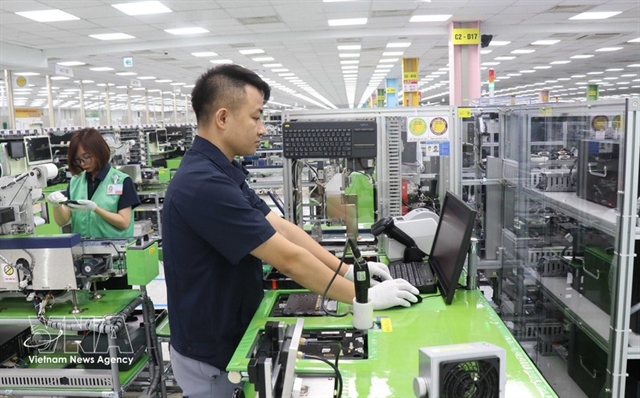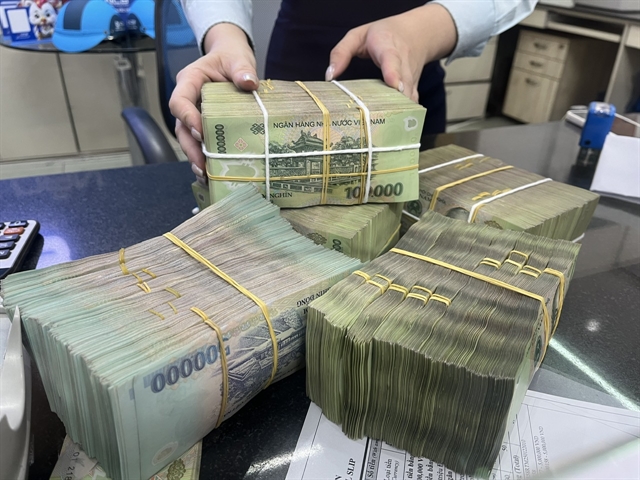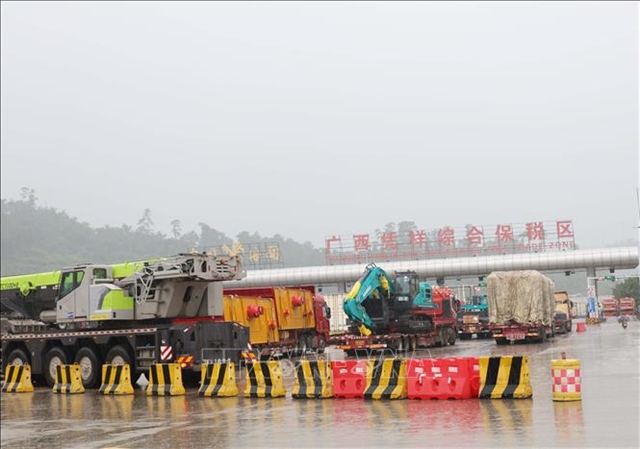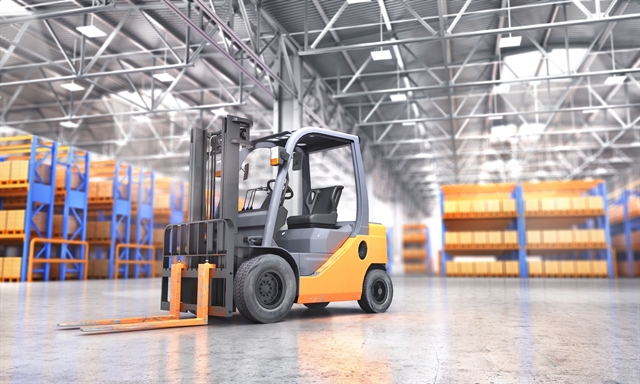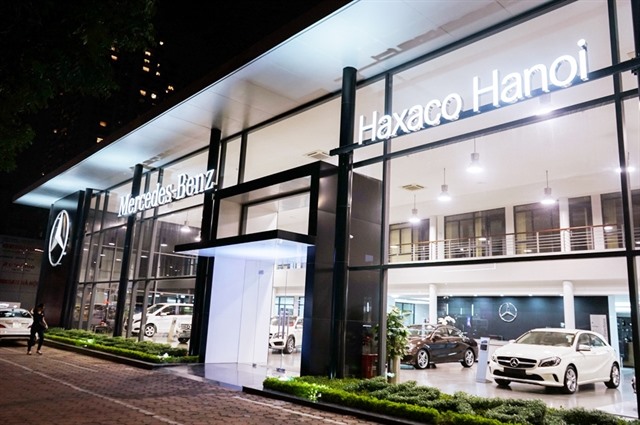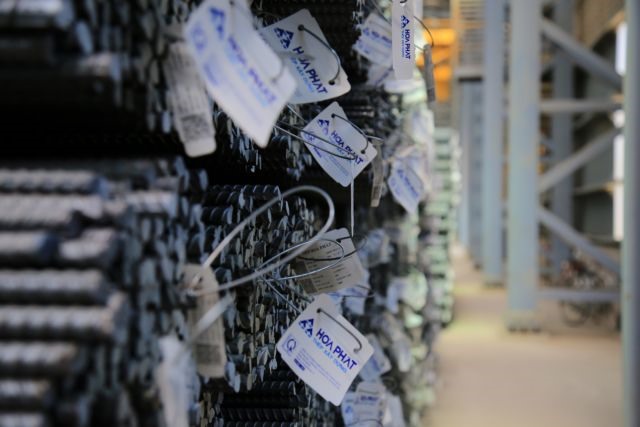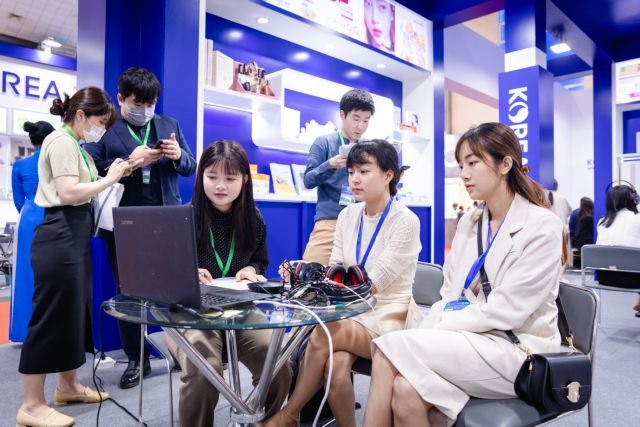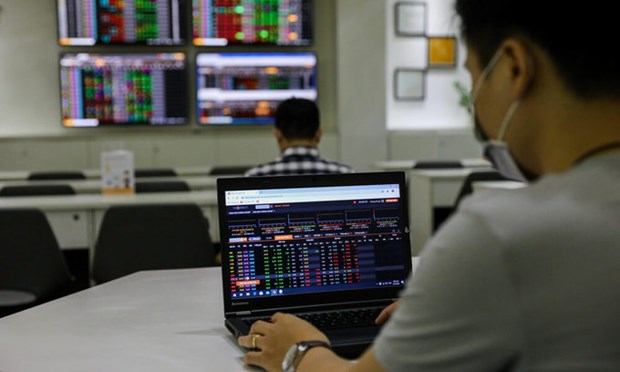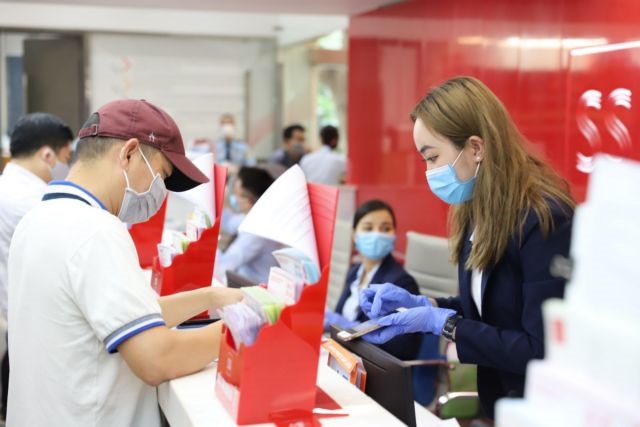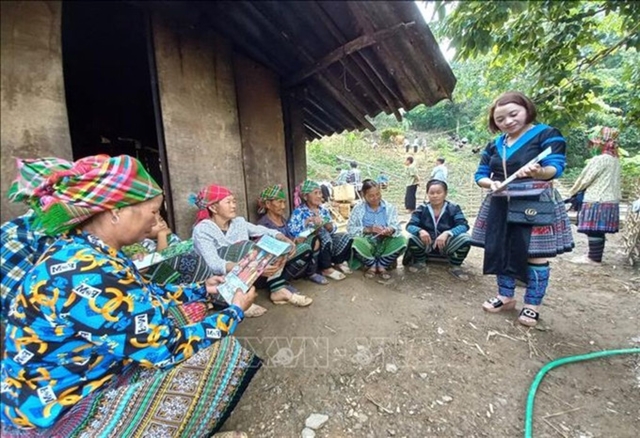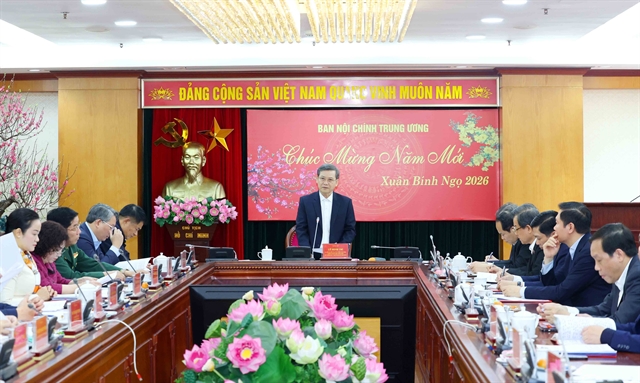
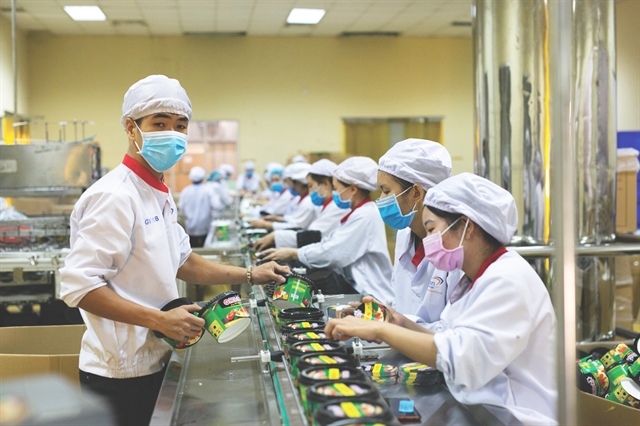
|
| At a plant producing essential consumer goods of Masan. — Photo courtesy of the company |
HCM CITY — With demand for essential goods skyrocketing in many provinces and cities amid tightening social distancing requirements to tackle the surge in COVID-19, ensuring their supply to the market is an urgent task.
In a report sent to the Prime Minister, the Ministry of Agriculture and Rural Development’s southern working group said at some factories with a large workforce, only 30-40 per cent of workers are vaccinated.
The risk of people who ensure long-term supply of food and foodstuffs contracting the infection is thus very high.
Many factories, supermarkets, and wet markets are closed after people were found there with infection, reducing supply, causing local shortages and affecting social security. Large manufacturing and retailing enterprises play an important role in ensuring the supply and distribution of goods to consumers.
Masan, whose core businesses are the production of essential consumer goods and retail, has more than 30 plants and a number of hi-tech livestock and crop farms in most of the country’s key economic regions.
Its VinMart/VinMart+ supermarket and store chains are the largest modern retail chain in the country with nearly 2,500 outlets.
To enable more consumers to access its modern retail channel, Masan plans to open another 750 VinMart+ stores this year, taking the total number of outlets across the country to more than 3,000.
Masan sells essential items such as rice, instant noodles, soy sauces, fish sauces, beverages, pork, chicken, eggs, green vegetables, and so on.
As one of the few enterprises in the country capable of integrating the entire chain comprising production, supply, distribution, and retail, Masan serves the essential needs of a large number of customers nation-wide at steady prices.
Thanks to scrupulously implementing COVID-19 prevention and control measures, Masan's factories have functioned normally since the pandemic broke out, ensuring uninterrupted supply of essential goods.
Buffer zone solution to both fight epidemic and sustain production
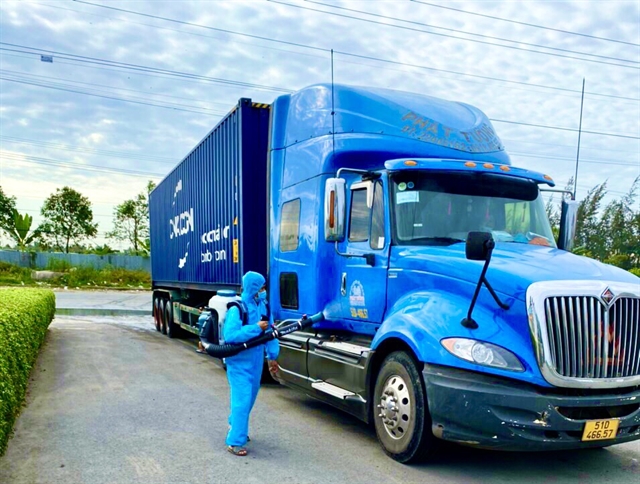
|
| A truck being disinfected as it enters a plant producing essential consumer goods of Masan. — Photo courtesy of the company |
With more than 40,000 employees working in its manufacturing and retail operations, Masan's top priority is protecting their health and that of customers, and preventing any disruption of the supply chain.
Right from the early days of the COVID-19 outbreak, its factories and retail systems have tightened anti-epidemic measures, including the implementation of 5K and the ‘3 on-site’ requirements.
Implementation of the latter is a big challenge for many businesses since some do not have enough employees while many women workers are unable to stay at the worksite since they have to take care of their children and other family members.
Moreover, the cost of having workers stay on site is too high since businesses have to set up facilities for staying, provide food and periodically have the workers tested for COVID.
Many business owners said due to the large number of cases in the southern provinces and cities, infection could sweep across enterprises at any time.
The Delta variant causes more infections and spreads faster than earlier ones. With the high density of factories in the southern region and very large number of workers, it is extremely difficult for businesses to find sufficient accommodation space for them.
Speaking at a national online meeting chaired by Prime Minister Phạm Minh Chính on August 8, Nguyễn Thị Phương, permanent deputy general director of VinCommerce (an affiliate of Masan Group and owner of VinMart supermarket and VinMart + store chains), said though the ‘3 on-site’ model is appropriate, actual implementation shows it can only be effective for a short period of one to two weeks.
In the longer term, if there is an infection, it would create a large pool of infection, she pointed out.
To preclude this, she called for setting up "buffer zones" around factories for workers to eat, rest, social distance, and fulfil other personal needs while ensuring full compliance with pandemic prevention and containment regulations.
“Enterprises will actively search for buffer zones, which can be schools, vocational schools, warehouses, stadiums, and unused arenas.
“But this solution can only be successful with the support of the Government and local authorities. Therefore, businesses expect the Government to approve the buffer zone solution and replicate the model.”
Setting up safe shopping space
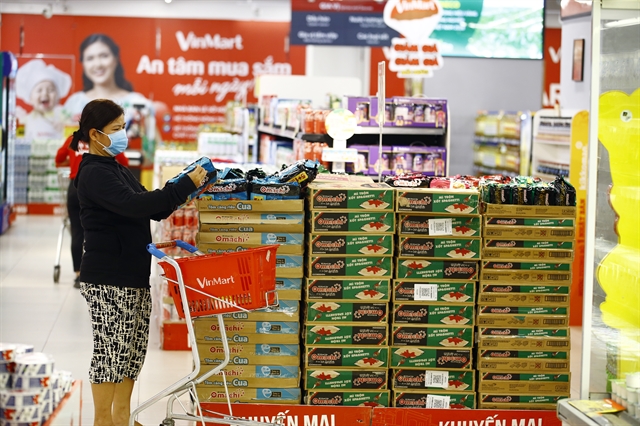
|
| A customer shops for instant noodles at a VinMart supermarket. — Photo courtesy of the company |
To help customers shop without apprehension, VinMart/VinMart+ chains have adopted strict epidemic prevention measures comprising three lines of protection.
Line 1 – Their employees, partners and customers are required to mandatorily comply with the Ministry of Health’s 5K message.
Line 2 – The chains scrupulously comply with epidemic prevention and containment regulations in each locality and
Line 3 – They deploy internal epidemic prevention measures.
Before beginning their shift all supermarket and store employees must have their temperature checked and disinfect their hands, and they are provided with protective equipment including face masks, gloves and hand sanitisers.
The internal inspection team regularly checks, reminds and ensures that all employees strictly comply with regulations.
Suppliers coming to the supermarkets must also strictly comply with regulations such as making health declarations, washing hands with antibacterial soap /liquid and having their temperature checked.
All these measures are aimed at providing safe shopping space and ensuring the smooth operation of the retail system to fulfill the role of providing essential goods to consumers.
Masan Group has written to the Ministry of Health and Ministry of Industry and Trade asking for favourable conditions to vaccinate its sales staff at supermarkets and stores and workers at factories producing essential goods against COVID-19.
More than 10,000 employees of Masan have so far been vaccinated. VNS
